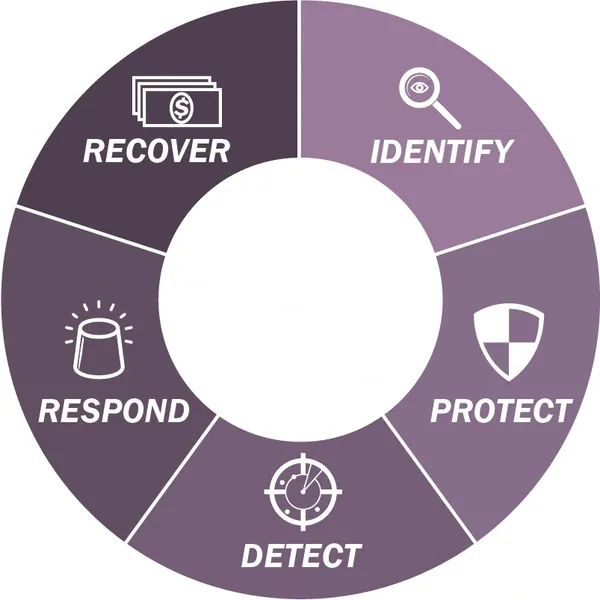Cybersecurity

Cybersecurity Compliance
Cyber resilience encompasses an organization’s ability to continuously serve its clients regardless of the cyber events it faces. The foundational elements of establishing and maintaining cyber resilience are understanding the current cyber risk posture, identifying its desired cyber risk posture, and developing a roadmap to ensure cyber risk reduction and overall enterprise cyber risk management.
Organizations must take a structured approach to identify assets, business processes, and controls that support continuous delivery of services. Once identified, the threats, vulnerabilities, and procedural weaknesses need to be analyzed for potential impact on the organization. From here, the organization can understand its current risk posture, allow management to make informed decisions on risk treatment and support its journey toward true cyber resilience while understanding legal obligations.
Cybersecurity Risk Assessment & Legal Obligations
Our approach to assessing enterprise risk delivers an evidence-based analysis of your organization’s current cyber risk posture, a prioritized risk treatment roadmap, and the data management for making informed decisions on cyber risk reduction investments.
Our reports highlight the assets, business processes, and technologies representing the greatest risk, treatment options, and anticipated residual risk once items are remediated. This approach enables you to improve your overall cyber risk posture and enhance your cyber resilience.


Cybersecurity Tax Credits & Certifications
As both Federal and State legislation continues to develop as it relates to Cybersecurity, numerous incentive and certification programs are coming to fruition.
KC & Associates remains are the forefront of the rapidly evolving marketplace.
For example, the Buy Maryland Cybersecurity Tax Credit (BMC) provides an incentive for Qualified Maryland Companies to purchase cybersecurity technologies and services from a Qualified Maryland Cybersecurity Seller. Qualified Maryland Companies may claim a tax credit for 50% of the net purchase price of cybersecurity technologies and services.
Data Privacy Program Development Services
Since today’s consumers choose companies that value their privacy and security, data protection is no longer an optional component of a cyber program. The volume of personal data being created, transmitted, and stored — combined with the economic, social, and political concerns over data handling, means that simply adhering to existing and new privacy rules is now the bare minimum expectation. More critical to long-term success is a well-executed data privacy plan that can be used as an advantage to win and retain customers; a plan that will turn privacy into a business opportunity for your organization.


Third Party Risk Management
Organizations in every industry are increasing their reliance on third parties for key business process outsourcing. As a result, third party risk management (TPRM) has never been more important. The escalation in number of breaches and other cyber attacks as well as regulatory compliance obligations means organizations must do more to effectively manage third party risk.

